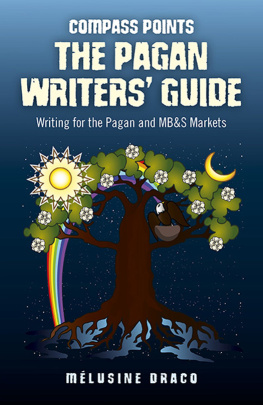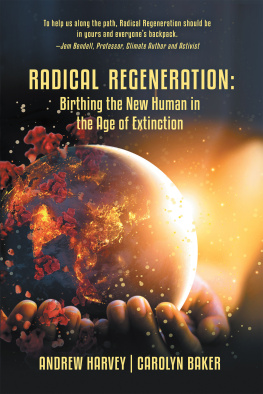Harold R. Willoughby - Pagan Regeneration
Here you can read online Harold R. Willoughby - Pagan Regeneration full text of the book (entire story) in english for free. Download pdf and epub, get meaning, cover and reviews about this ebook. year: 2018, publisher: Global Grey ebooks, genre: Religion. Description of the work, (preface) as well as reviews are available. Best literature library LitArk.com created for fans of good reading and offers a wide selection of genres:
Romance novel
Science fiction
Adventure
Detective
Science
History
Home and family
Prose
Art
Politics
Computer
Non-fiction
Religion
Business
Children
Humor
Choose a favorite category and find really read worthwhile books. Enjoy immersion in the world of imagination, feel the emotions of the characters or learn something new for yourself, make an fascinating discovery.
- Book:Pagan Regeneration
- Author:
- Publisher:Global Grey ebooks
- Genre:
- Year:2018
- Rating:5 / 5
- Favourites:Add to favourites
- Your mark:
- 100
- 1
- 2
- 3
- 4
- 5
Pagan Regeneration: summary, description and annotation
We offer to read an annotation, description, summary or preface (depends on what the author of the book "Pagan Regeneration" wrote himself). If you haven't found the necessary information about the book — write in the comments, we will try to find it.
Pagan Regeneration — read online for free the complete book (whole text) full work
Below is the text of the book, divided by pages. System saving the place of the last page read, allows you to conveniently read the book "Pagan Regeneration" online for free, without having to search again every time where you left off. Put a bookmark, and you can go to the page where you finished reading at any time.
Font size:
Interval:
Bookmark:
PAGAN REGENERATION
A STUDY OF MYSTERY INITIATIONS IN THE GRAECO-ROMAN WORLD
BY
HAROLD R. WILLOUGHBY
1929
Pagan Regeneration By Harold R. Willoughby.
This edition was created and published by Global Grey
GlobalGrey 2018

globalgreyebooks.com
IT MUST frankly be confessed that this study of mystery initiations in the Graeco-Roman world is but a prolegomenon to further research in early Christian origins. For some years the author has been fascinated by the problem of the genesis of Pauline mysticism. How did it come about that, with Judaism and primitive Christianity essentially unmystical in character, Pauline Christianity developed in a way to accentuate the mystical phases of religious experience? The writer hopes that some day circumstances will permit him to make a contribution toward the solution of this problem. In order to answer this question it is patently necessary to investigate the gentile religious milieu in which Pauline Christianity had its development.
Researches in the field of Graeco-Roman religions prove conclusively that apologists for early Christianity and even eminent classicists have been inclined to underestimate the genuineness of gentile religious interests and the extent to which religion dominated life in pagan lands when Christianity was emerging. Of the gentile cults probably the most popular in the first century, and certainly the least known and understood in the twentieth, were the so-called mystery religions. Notwithstanding the protestations of apologists there is ample evidence that in both the west and the east the mystery cults were widely disseminated and very influential before Christianity appeared on the scene. In the following pages care is taken to exhibit this evidence in relation to each of the mystery systems.
A detailed investigation of typical cult experiences further convinced the author that the central meaning of mystery initiation--the regeneration, both essential and ethical, of the individual devotee--has largely escaped the notice of even sympathetic researchers. To bring out this meaning in the terminology and thought-forms of the initiates themselves, as recorded in scattered and fragmentary remains both monumental and literary, is one of the major purposes for which these studies are published.
Additional researches in Hermetic and Philonian literature demonstrated how important this mystical type of religious experience was considered to be, not only by religio-philosophical groups but also by individual thinkers quite outside the circle of gentile cult brotherhoods. To the writer Philo's case was particularly interesting, because it illustrated the extent to which the thought and experiences of a diaspora Jew might be influenced by gentile religious practices.
An analytical investigation of the social milieu in which the mystery cults operated brought to light the fundamental character of the interests and needs met by mystery initiation. On the one hand this made intelligible the undoubted popularity of the mystery cults themselves; on the other hand it served to suggest why it was the early Christian propagandists, in order to win gentile adherents to their cult, came to place such insistent emphasis on the experience of individual regeneration.
By means of the dedicatory page the author has tried to express a gratitude and appreciation that lie too deep for words. He would also make grateful acknowledgment to Professor Shirley Jackson Case, who guided his early studies in the mystery religious, and to Professor Edgar J. Goodspeed, who gave helpful advice and encouragement. The reading of proof, the verification of references, and the preparation of the Index have been largely the work of Dr. A.D. Beittel and Mr. R.B. Brewer. Their painstaking exactness is deserving of commendation. Above all the writer would express his appreciation to a number of his own students who with patience more than Christian have endured tedious lectures about pagan mysteries.
H.R.W. Godspeed Hall The University of Chicago July 4, 1929
THERE is a vague but widespread impression that the age that saw the emergence of Christianity was religiously destitute and morally decadent. The general and orthodox conviction of today is that all pagan religions current in the first century A.D. were in a bad state of degeneration. Originally they may have started with a modicum of light and revelation from above, but that original good had been corrupted by false beliefs and evil practices to such an extent that in the first century the gentile world was in a worse state than it had ever been before. People of all classes, wearied of the apparent futility of contemporary cults, were quitting them wholesale, or were giving them a merely formal adherence. In an abandon of atheism they were surrending themselves to unrestrained indulgence in immoral practices. Approximately this is still the popular impression of religious conditions in the Graeco-Roman world.
This misconception, so far as it has any basis at all in ancient sources of information, results from a piecing together of notions derived from certain readily accessible writings, pagan and Christian. On the one hand, philosophical writings in Greek and Latin record the rationalist criticism to which the polytheistic systems of the Gentiles were subjected. Furthermore, the Roman satirists of the early imperial period, superlatively skilful in the practice of their art, painted the immoralities of the upper classes in Roman society in colors that could not be forgotten. On the other hand, the later Christian apologists delighted to represent their pagan competitors in as unfavorable a light as possible. They pilloried the faults and failures of gentile religions and sought to establish the point that the inadequacies of paganism were a part of the providential preparation of the world for the outburst of true revelation in Christianity itself. This admittedly apologetic position, familiar alike in ancient and modern times, was given its classic statement in the Praeparatio Evangelica composed early in the fourth century A.D. by Eusebius of Caesarea.
Concerning the literary sources involved it is sufficient to observe, first of all, that the Greek and Roman authors cited represent the attitudes and customs of limited classes in contemporary society: the skepticism of the intellectuals and the excesses of the nouveaux riches. As to the Christian sources, they betray a frank bias both in the selection of discreditable data and in the utilization of that data to serve a polemic purpose. Because of this misuse of inadequate materials the point of view which posits a dearth of real religion in the Graeco-Roman world is itself clearly discredited.
Completely contradictory to such an estimate was the judgment of the earliest Christians concerning rival religious movements. They, who knew competition with gentile cults as a matter of vivid present experience, did not question the strength or reality of gentile loyalties to heathen systems. Not because Gentiles were irreligious but because they were so incurably and tenaciously religious, Christian propagandists actually made little headway with them at first. In face of this discouraging situation the missionaries explained their early failures as due to the infatuated devotion of Gentiles to gods who were really demons. The earliest historian of Christianity, writing at the end of the first century, represented Paul, the outstanding missionary to the Gentiles, as saying to a typical pagan audience, "Men of Athens, from every point of view I see that you are extremely religious."
Next pageFont size:
Interval:
Bookmark:
Similar books «Pagan Regeneration»
Look at similar books to Pagan Regeneration. We have selected literature similar in name and meaning in the hope of providing readers with more options to find new, interesting, not yet read works.
Discussion, reviews of the book Pagan Regeneration and just readers' own opinions. Leave your comments, write what you think about the work, its meaning or the main characters. Specify what exactly you liked and what you didn't like, and why you think so.











